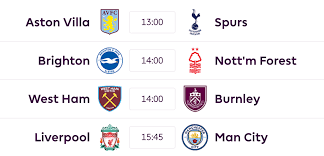Could Bitcoin Really Gain Another $1 Trillion in Value After the ...

Over the past 15 months, Bitcoin (CRYPTO: BTC) has absolutely been on fire. It is up over 320% and is currently trading near its all-time high of $73,750. Right now, Bitcoin has a market cap of more than $1 trillion. So, what if I told you that Bitcoin was just getting started and that it could gain another $1 trillion in market cap by the end of 2025?
Yes, you would have plenty of reasons to roll your eyes or laugh politely. But there is an upcoming event -- the much-anticipated Bitcoin halving -- that many Wall Street analysts think could help Bitcoin double in value and gain another $1 trillion in market cap within the next 12 months. Are they right?
The logic behind the Bitcoin halving
The first thing you need to know is that the Bitcoin halving will come and go on or about April 19, and you probably won't even know it happened. You won't see millions of people gathering in specific locales to cheer on the event, as we recently saw with the total solar eclipse. And you won't see Satoshi Nakamoto -- the pseudonymous creator of Bitcoin -- making the rounds on late-night TV. At best, you'll see mentions of #Bitcoin blowing up in your social media feeds.
That's because everything happens algorithmically and not in the real world. Approximately every four years, the Bitcoin algorithm readjusts such that the mining rewards for Bitcoin miners are slashed by one-half. Currently, they receive 6.25 BTC for every block they add to the Bitcoin blockchain; on or about April 19, they will receive 3.125 BTC.

Another way of thinking about this, however, is that the rate of new Bitcoin creation is being cut in half. And this has enormous economic consequences. It enhances the scarcity of Bitcoin, making it much more attractive as a long-term investment. According to the algorithm, the total lifetime supply of Bitcoin is capped at 21 million coins. The current circulating supply is already 19.7 million coins, so 94% of all Bitcoin that will ever exist has already been created!
Story continues
This is why many analysts suggest that there could be a very real "supply squeeze" or "supply shock" as everyone races to get their hands on available Bitcoin. There are already reports that the supply of Bitcoin on cryptocurrency exchanges is starting to dry up, and so this "supply squeeze" could get very intense in the immediate aftermath of the halving. When you factor in all the new demand coming from the spot Bitcoin ETFs, it's easy to see how the price of Bitcoin could soar higher.
Historical price performance
If you look at previous Bitcoin halving cycles, it's easy to conclude that the scarcity effect is very real. There have been three previous Bitcoin halving cycles -- in 2012, 2016, and 2020 -- and each one has led to monster price gains for Bitcoin, as well as a brand-new all-time high.
Take the 2012 halving, for example. The price of Bitcoin skyrocketed from $12 to $1,161 for a gain of 9,575%. After the 2016 halving, the price of Bitcoin soared from $600 to $20,000, for a gain of 3,233%. And, after the 2020 halving, the price of Bitcoin soared from $9,000 to $69,000, resulting in a gain of 667%.
So we're not just talking about a nice 10% bump here. We're talking about major parabolic moves that are simply unprecedented in the history of financial assets. No surprise, then, that hedge fund managers and crypto analysts are steadily ratcheting up their price estimates for Bitcoin in the 2024 post-halving cycle. The current consensus seems to be $150,000 by the end of 2025, which would imply a more than doubling in the price of Bitcoin, as well as more than $1 trillion in new market cap.
Keep your expectations in check
So far, so good, right? The basic economic logic of the halving makes sense, and we have plenty of previous price data to back up conclusions. But not so fast. Keep in mind that it took Bitcoin almost an entire decade to gain $1 trillion in market cap. And now we're saying that Bitcoin is going to duplicate an entire decade's worth of work in just 12 months?
Moreover, take a closer look at the gains after every halving cycle. They are decreasing over time. So the gains from this fourth halving cycle might not be nearly as impressive. If you only look at post-halving gains using a six-month time frame, as Coinbase Global recently did, the numbers are even less impressive. In the 2020 halving cycle, Bitcoin was only up 82% after the first six months.
And finally, keep in mind that as Bitcoin goes mainstream, it also becomes more likely that it will start to behave more and more like a mainstream financial asset. It may start to lose some of its volatility and, thus, lose some of its completely unprecedented upside potential. So, keep your expectations in check this time around. It may take longer than people think for Bitcoin to become a $2 trillion asset.
Should you invest $1,000 in Bitcoin right now?
Before you buy stock in Bitcoin, consider this:
The Motley Fool Stock Advisor analyst team just identified what they believe are the 10 best stocks for investors to buy now… and Bitcoin wasn’t one of them. The 10 stocks that made the cut could produce monster returns in the coming years.
Consider when Nvidia made this list on April 15, 2005... if you invested $1,000 at the time of our recommendation, you’d have $540,321!*
Stock Advisor provides investors with an easy-to-follow blueprint for success, including guidance on building a portfolio, regular updates from analysts, and two new stock picks each month. The Stock Advisor service has more than quadrupled the return of S&P 500 since 2002*.
See the 10 stocks »
*Stock Advisor returns as of April 8, 2024
Dominic Basulto has positions in Bitcoin. The Motley Fool has positions in and recommends Bitcoin and Coinbase Global. The Motley Fool has a disclosure policy.
Could Bitcoin Really Gain Another $1 Trillion in Value After the Halving? was originally published by The Motley Fool


 United Kingdom
United Kingdom Argentina
Argentina  Australia
Australia  Austria
Austria  Brazil
Brazil  Canada
Canada  Germany
Germany  Ireland
Ireland  Italy
Italy  Malaysia
Malaysia  Mexico
Mexico  New Zealand
New Zealand  Poland
Poland  South Africa
South Africa  United States
United States 
























